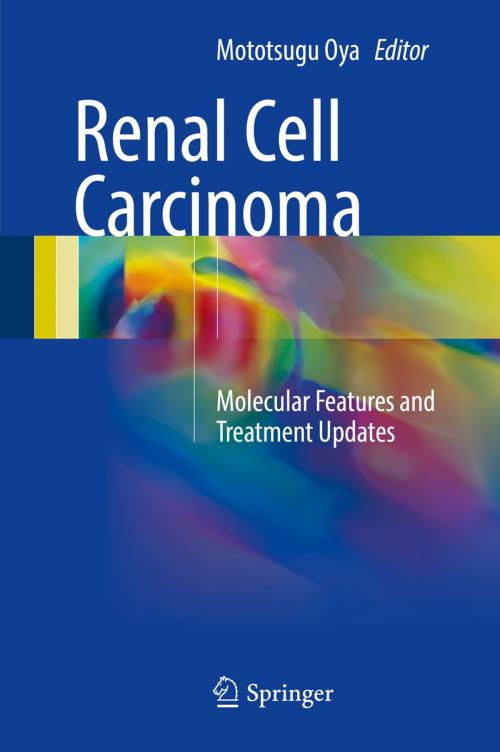Renal Cell Carcinoma
Molecular Features and Treatment Updates
Nonfiction, Health & Well Being, Medical, Specialties, Urology, Oncology| Author: | ISBN: | 9784431555315 | |
| Publisher: | Springer Japan | Publication: | February 14, 2017 |
| Imprint: | Springer | Language: | English |
| Author: | |
| ISBN: | 9784431555315 |
| Publisher: | Springer Japan |
| Publication: | February 14, 2017 |
| Imprint: | Springer |
| Language: | English |
This book provides a comprehensive review of diagnosis and treatments of renal cell carcinoma (RCC) for practitioners and researchers with an interest in this disease. A major aim of the book is to present the most important and most recent advances in molecular bases and targeted therapy for this neoplasm. The remarkable resistance to chemotherapy and radiotherapy and the minimum contribution of cancer genes that commonly mutate in other adult epithelial cancers have made RCC highly distinct from other types of solid neoplasms. In the past decade, however, treatment options for RCC have been expanding and moving quickly toward laboratory-based and molecular-targeted therapies. Advances in RCC therapy also have brought novel treatment options to other types of cancer, such as a TKI for hepatocellular carcinoma and gastrointestinal tumors, as well as mTOR inhibitors to progressive neuroendocrine tumors of pancreatic origin and to breast cancer, suggesting that RCC is no longer an "orphan disease" in the field of molecular oncology. Additional topics covered in the book include pharmacokinetics and pharmacodynamics in molecular-targeted agents and the putative mechanism of resistance to anti-angiogenic agents, such as intratumoral heterogeneity or cancer stem cell population. This volume provides the latest and most useful information for all readers who are eagerly devoted to curing renal cell carcinoma.
This book provides a comprehensive review of diagnosis and treatments of renal cell carcinoma (RCC) for practitioners and researchers with an interest in this disease. A major aim of the book is to present the most important and most recent advances in molecular bases and targeted therapy for this neoplasm. The remarkable resistance to chemotherapy and radiotherapy and the minimum contribution of cancer genes that commonly mutate in other adult epithelial cancers have made RCC highly distinct from other types of solid neoplasms. In the past decade, however, treatment options for RCC have been expanding and moving quickly toward laboratory-based and molecular-targeted therapies. Advances in RCC therapy also have brought novel treatment options to other types of cancer, such as a TKI for hepatocellular carcinoma and gastrointestinal tumors, as well as mTOR inhibitors to progressive neuroendocrine tumors of pancreatic origin and to breast cancer, suggesting that RCC is no longer an "orphan disease" in the field of molecular oncology. Additional topics covered in the book include pharmacokinetics and pharmacodynamics in molecular-targeted agents and the putative mechanism of resistance to anti-angiogenic agents, such as intratumoral heterogeneity or cancer stem cell population. This volume provides the latest and most useful information for all readers who are eagerly devoted to curing renal cell carcinoma.















